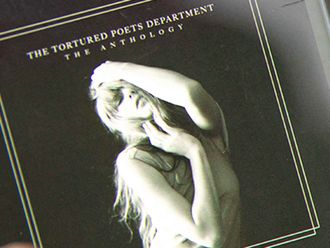
His life and career are fitting for that of an international bestseller — novelist, playwright, former Tory deputy chairman, a mayoral candidate for London, champion athlete, friend of the stars and, more painfully, a prisoner and failed businessman. Although he is reluctant to talk about most parts of his life, Jeffrey Archer undeniably understands the dynamics of popular storytelling. Decades after he published his first novel Not a Penny More, Not a Penny Less, a critically acclaimed novel that was turned into a TV series and reprinted 57 times, his books are still as popular.
After his fall from grace in 2001 — he was convicted on perjury charges and served two years in prison — many assumed that readers would lose interest in him, and find other storytellers. Instead, his determination to keep writing had a positive effect on his writing.
Incredibly, Archer -- who was found guilty of creating false diaries and concocting a bogus story to win a 1987 trial concerning whether he had slept with a prostitute -- was back in business, despite everything that fate and the media had thrown at him.
Since his release from prison in 2003, he has published three editions of his prison diaries, written three novels, including Paths of Glory and A Prisoner of Birth, and written his seven-volume series The Clifton Chronicles.
The former politician has sold over 300 million copies of his novels and short stories worldwide, but has not won a single literary prize in the UK. Regardless, Archer is pleased that his primary skill is populist writing and that has managed to stay relevant.
“It’s impossible to be considered a good writer if you’re a storyteller,” he says. “I’m lucky to be a storyteller because they do survive longer than many established writers. For example, people are still reading Dumas, Dickens and Jane Austen, whereas there are several Nobel Prize winners who are out of print.”
His success as a novelist is intriguing considering that writing was his second choice of career after politics. In 1974, a business deal with a Canadian company left him near bankruptcy and forced him to stand down as MP — he had become a Tory MP at the age of 29. That experience inspired his first novel, Not a Penny More, Not a Penny Less in 1975. In 1979 he hit the jackpot with his third book, Kane and Abel. It turned him into a household name.
Does he have a favourite book, or the one he feels proudest of?
Archer is prompt in his response. “The general public have decided that Kane and Abel is the best thing I’ve ever done, but The Clifton Chronicles — if you look at reviews and sales — are not far behind. But actually, I consider that Paths of Glory is probably the best thing I’ve ever done.” Paths of Glory, published in 2009, is a fictionalised version of George Mallory’s fatal 1924 ascent of Everest, and has not only performed better than expected but has also been optioned for the movies.
His latest project, the bestselling saga The Clifton Chronicles, came to an end last November after for more than five years, with the seventh and final book, This Was A Man.
The series of seven books, which Archer begun in 2011, is set in the UK in the mid 20th century and charts the lives of three characters from the 1920s to the present day. The books revolve around Harry Clifton and his relationship with Giles Barrington and his sister Emma as they battle their way through a sequence of mishaps and scandals, including political espionage, corporate misconduct and love matches.
Quite understandably, Archer compares himself to the main character Harry, who sets out to write his magnum opus. “Harry Clifton in the Clifton Chronicles is pretty much based on me, and Emma is based on my wife Mary. It is quite autobiographical,” he says.
The final instalment, This Was A Man, is packed with drama and twists, and garnered praise from critics as well as readers. Archer confesses the reviews and sales of the book took him by surprise.
“The surprising thing about the Clifton Chronicles was that the publishers kept reminding me that, in general, the numbers reading a series fall with each book,” he says. “But with The Clifton Chronicles, this was reversed. This Was A Man is 72 per cent up on the first volume.” He reportedly received an £18 million advance for The Clifton Chronicles.
Archer continues, “I get very nervous on publication day, and wonder if anyone will buy the book — it’s always a pleasant surprise to find a week later that I was fussing about nothing.”
A master storyteller and book writing machine, Archer, who believes that “any novel can be summed up in three sentences”, has just completed a set of 12 short stories that he hopes to publish in April.
Despite his self-confidence as a storyteller and more than 150 books to his name, Archer still writes up a few drafts of his books. He is rigidly disciplined.
“I consider myself very lucky to have been born with a talent for storytelling, but of course that is not enough alone. If you’re not willing to be dedicated and disciplined about the hours you work, you can’t hope for success,” he says.
Talking about his famed writing regimen, Archer says he writes for eight hours every day, in two-hour stretches. “I start at 6 to 8am, then have breakfast, get back to work at 10 until midday, when I go for a walk and then have a light lunch. I write again from 2 until 4pm, then break and take another walk when I might think through the next chapter. I watch a bit of TV, perhaps catch up on a cricket match.”
“My final session is 6 until 8pm, after which I have dinner and then relax with a film or a couple of episodes of a gripping drama series,” he says.
And he still uses Staedler pencils and notebooks. “I hand-write my first draft in pen, and I use an HB pencil on a typed manuscript for further drafts.”
He does most of his writing in his house in Majorca, where he spends part of the year. “I have a lovely home in Majorca where I go away to write. My writing room overlooks the Bay of Palma and is very quiet, so I don’t get disturbed,” he says.
Being a successful novelist means he spends quite a bit of his time on book tours, at literature festivals and talking to large audiences about his inspiration and work process. These times are often the only chance for Archer to spend time with the actual people who read his books.
All set for his second outing at the Emirates Airline Festival of Literature, Archer is aware of his tight schedule at the fest. “Although I’m looking forward to the festival, I fear that when I’m in Dubai, as I’m giving three talks in four days, there won’t be much time to go out and about,” he says.
For most men in their 70s this would be a chance to slow down, but not for Archer. He is 76, his face is lined and he has come through prostate cancer, but he’s still keeping fit. “I train three days a week in the gym, and have an outstanding New Zealand trainer who pushes me as far as she can, and I certainly benefit from it.”
He has interests outside writing as well. He has a gift with the gavel, and has been a keen auctioneer for 33 years — he convinced The Beatles to back an Oxfam campaign, and arranged for Lyndon Johnson to sign a donated recording of Winston Churchill’s speeches. It started in the 1980s and so far he has conducted over over 1,000 charity auctions.
“I have been doing charity auctioneering for around 30 years, and in fact conduct around 20 auctions a year for different charities,” he says. Among the items Archer has contributed to the auction are first editions of all of his books.
Without a doubt, Archer’s three decades in writing still pale in comparison to his own life story — a life stranger than fiction. If he had another shot at things, would he do them differently? “I would. I wanted to be a bar room singer, only if I had a voice.”
Suparna Dutt-D’Cunha is a writer based in Pune, India.
Jeffrey Archer is taking part in the Emirates Airline Festival of Literature to be held at InterContinental, Dubai Festival City, from March 3-11, 2017.
QUICK-FIVE:
- What would I be if I hadn’t been a writer... Captain of the England cricket team
- A book I wish I’d written... Beware of Pity by Stefan Zweig
- The first novel I read...Swallows and Amazons by Arthur Ransome
- A recent book I will remember in 10 years’ time...My Brilliant Friend by Elena Ferrante
- A book I’d take to a deserted Island...The Count of Monte Cristo by Alexandre Dumas









